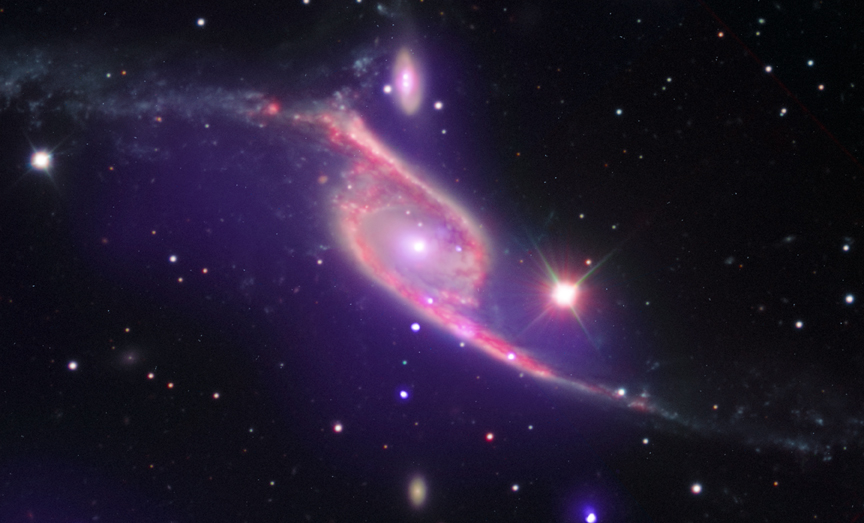Do science and faith collide in Islam?

Question
I believe that we need to think deeply of Islam as a system of life and usually knowledge accompanies understanding which in turn leads to conviction. At the same time Islam entails the issue of “faith” which requires believing in things that are invisible or unseen such as angels, jinns, heaven and hell. For being a Muslim I should be convinced in the existence of these unseen things. My question is what is the separating line between science and faith? And what is the meaning of “faith” from the Islamic perspective?
Islam is the last word of God to all the worlds and it is the final testament which was conveyed to us through Prophet Muhammad (peace be upon him). Islam has the unique feature of being adequate to become the reference point of all paradigms of knowledge and in total harmony with all the scientific facts. Muslims believe that the divine revelation is God’s written book and that the whole universe is God’s seen book and both of them come from God. The divine revelation comes from the world of command and the universe comes from the world of creation and whatever comes from God does not contradict each other. Therefore God says in the Quran, “Unquestionably, to Him belongs both creation and command; blessed is Allah , Lord of the worlds.7:45
For this reason knowledge in Islam has two sources: divine revelation and universe. Islam admits that science does not know the final word as God says, “but over every possessor of knowledge is one [more] knowing.” 12:76
And Islam also admits that a true believer should be in a continuous search for facts and whenever he finds it, he should be the most rightful to adhere to it. The Prophet says, “Wisdom is the lost property of the believer, so wherever he finds it then he has a right to it.”
Islam is a religion of science as it includes maxims of understanding and principles for deduction along with methodologies for application. It also goes in harmony with mental concepts because the mind is one of God’s creation. In other words, Islam believes in adopting different scientific methods as long as it leads to certainty. Whenever certainty is reached, it precedes speculative results. On the other hand Islam does not restrict science or knowledge to only experimental kind but it transcends to encompass all things which lead to correct results even if it weren’t experimental. Muslims believe that believing in the unseen does not contradict the mind because the unseen simply transcended over the realm of mind but does not contradict the mind.
This means that there is a clear difference between the mentally impossible which is defined as combining between two contradictory objects and the supernatural things such as the miracles of the messengers for example. In other words, it is logically impossible for us to believe that one plus one equals three for example but it does not contradict logic to believe that there are invisible creatures which we are unable to see or that water sprang from the Prophet’s fingers or that God informs the Prophet of what people hide in their homes or conceal in their hearts.
Therefore Islam forms the perfect harmony between faith and science as they are two faces of the same coin and each one completes the other. The more the person expands on different branches of experimental sciences, the more he feels the grandeur of creativity, thoroughness and precision with which God created the whole universe. He would also realize that the universe is full of secrets and facts that humans have only discovered a few. This leads to an increase in his faith in God and love for this Great Creator. Therefore all that leads to God is considered faith. On the other hand, believing in the unseen world will lead the believer to be in total harmony, mercy and love with this universe which praises God and prostrates to Him. Believing in the unseen teaches people not to rush into denying facts before deliberation, consideration and deep thinking. It also opens up new horizons for the human mind. God says in the Quran, “Rather, they have denied that which they encompass not in knowledge and whose interpretation has not yet come to them.” (10:39
 Arabic
Arabic French
French Deutsch
Deutsch Urdu
Urdu Pashto
Pashto Swahili
Swahili Hausa
Hausa
